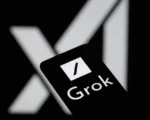After securing a significant $20 million seed funding last year, Unlikely AI’s founder, William Tunstall-Pedoe, has maintained a secretive stance regarding the startup’s strategy. However, it has now been revealed that Unlikely AI is adopting a “neuro-symbolic” approach to artificial intelligence. This method combines modern neural network techniques, as utilized by large language models like OpenAI’s GPT, with earlier Symbolic AI architectures to mitigate the shortcomings of both.
William Tunstall-Pedoe first gained recognition in the UK tech scene in 2012 when Amazon acquired his voice assistant startup, Evi. Two years later, Amazon launched Echo and Alexa, which incorporated much of Evi’s technology. With Unlikely AI, Tunstall-Pedoe aims to reclaim prominence by unveiling the technology he and his team have been developing since the startup’s founding in 2019.
Unlikely AI has also announced two significant hires. Tom Mason, the former CTO of Stability AI, has joined as the new CTO. At Stability AI, Mason managed the development of foundational models across various domains and played a key role in raising over $170 million for the company. At Unlikely AI, he will oversee its ‘symbolic/algorithmic’ approach. Additionally, Fred Becker, who previously held senior positions at Skype and Symphony, has joined as Chief Administrative Officer. He will be responsible for managing the startup’s 60 full-time staff based primarily in Cambridge (UK) and London.
Unlikely AI claims its approach to foundational AI models will address issues like bias, hallucination (fabrication), accuracy, and trust, which are common concerns with current AI technologies. Furthermore, the startup asserts that its method will be more energy-efficient, thereby reducing the environmental impact of large-scale AI systems.
















